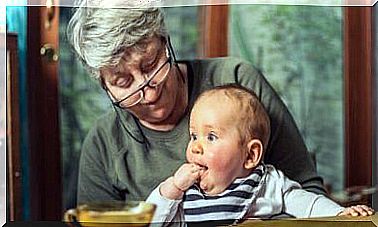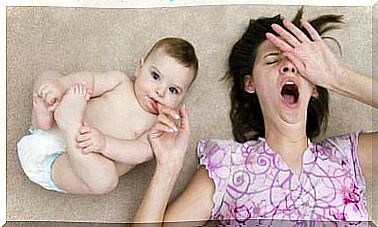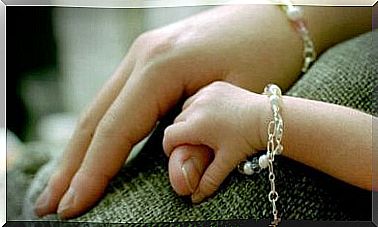Mama, Don’t Go Away! Separation Anxiety In Children
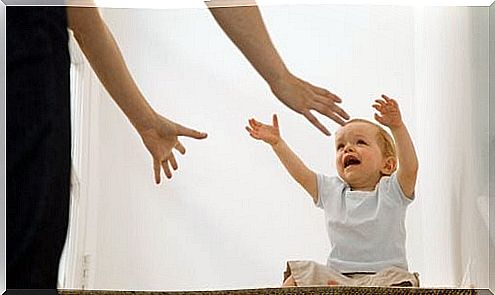
Separation anxiety in children is often responsible for tears or fits of anger, especially between the ages of one and two.
In worse cases, you may also experience shortness of breath, vomiting, nightmares or nighttime anxiety. All of these are signs of panic that need to be examined by a specialist.
But in most cases separation anxiety in children is temporary. The little ones quickly learn to behave correctly if the parents also manage this situation correctly.
A separation anxiety child may cry or act rebellious when they realize that their parents are about to leave. This can be when father or mother go to work or when they simply leave the room at home. Separation anxiety in children can always arise when the parents are not with the little one.
When the child realizes that they should stay with other people, they hold onto the mother’s neck or father’s pants as tightly as they can and scream to express their nervousness and fear.
Some children never feel this fear. Others, however, do so until they reach school age.
There are also children who, after a short time, become aware that they are safe and secure with other adults until they return to their parents.
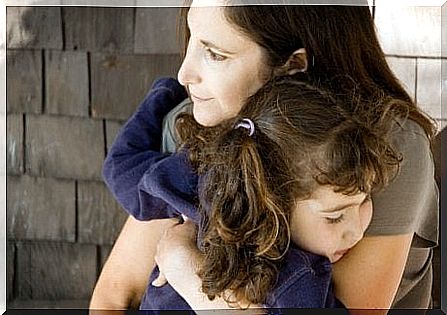
Do not leave me alone!
If you, as a mother, know that your child has separation anxiety, there are a number of things you can do to help them cope better.
Avoid stressful and abrupt situations. Don’t leave your child crying, even if it’s right that they won’t mourn you all day long.
But if your child has to go to the playgroup or to kindergarten, the following tips can help you:
Managing separation anxiety in children
Motivate your child to discover the room for themselves
Attend kindergarten a few days earlier with your child. Explain that it is a very special place with lots of toys to have fun with other children.
Show him how happy the children are in kindergarten or in the playgroup, what is being done there and how many things there are to discover. It is not necessary to enter the room, your child can watch everything with you from the door.
As soon as you are back home, you can talk about this very special place.
The next day you go there again with your child. If they want, they can step a little closer to look at the toys or listen to a song.
But if it doesn’t feel like doing it, you shouldn’t force it. It is important that your child sees how much fun the children are having in the group and how well they are entertaining each other. When you get back home, you can talk about anything you’ve seen.
Over time, your child will get used to it. They can marvel at toys, watch how others play and communicate with one another, get to know the kindergarten teachers …
Your child should look forward to kindergarten
Once your child is used to the place, you can visit the playgroup every day to see the other children. But then you should take the next step:
Stay with your child for at least an hour. During this time you can play with other children and take part in various activities.
Briefly leave your child’s field of vision
When your child feels comfortable in the group, you should start by leaving them alone for a moment.
Escape from his field of vision without moving far from him. Your child will quickly become aware of this and will start crying.
Then you call it and tell it that you are there. But don’t let them know that you come to them because they feel sad. Rather tell him: “Look what a great toy I have!” Or run at a duck step to make your child believe it is a game.
Repeat this situation several times each day.
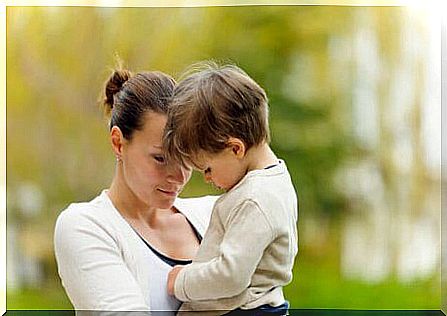
Create a distraction!
Achieving independence in play is very important so that your child slowly learns not to be by your side all the time.
Don’t play with him anymore, but stay by his side. You can now do yourself alone, for example with a puzzle. But don’t pay any attention to your child.
The kindergarten teachers can help you with this. If your child sees that you are playing with focus, they can circle and sing with all the children, or start a group game.
If your child sees that your game is not fun at all, they will draw their attention to the group that is having a lot of fun. It’ll want to play along.
Your child will not forget that you are there and will keep looking to you to see if you are actually still in the same place. Maybe it keeps coming back to you briefly.
But it will feel much safer and integrate into the playgroup.
After a few days you will see that your child likes the kindergarten teachers and feels comfortable with the other children. It no longer needs you by your side all the time. Now it can stay alone in the group.
If it’s all alone for the first time, it should only be a few hours. You are probably waiting in front of the door and you are much more nervous than your child! But after all, you have other tasks and obligations and your child is now well looked after.
They will be constantly busy in the group and even forget that you are there until the time comes again to go home with you.
As you can see, it is not that difficult to overcome separation anxiety in children. You just need a little patience and empathy at first.




